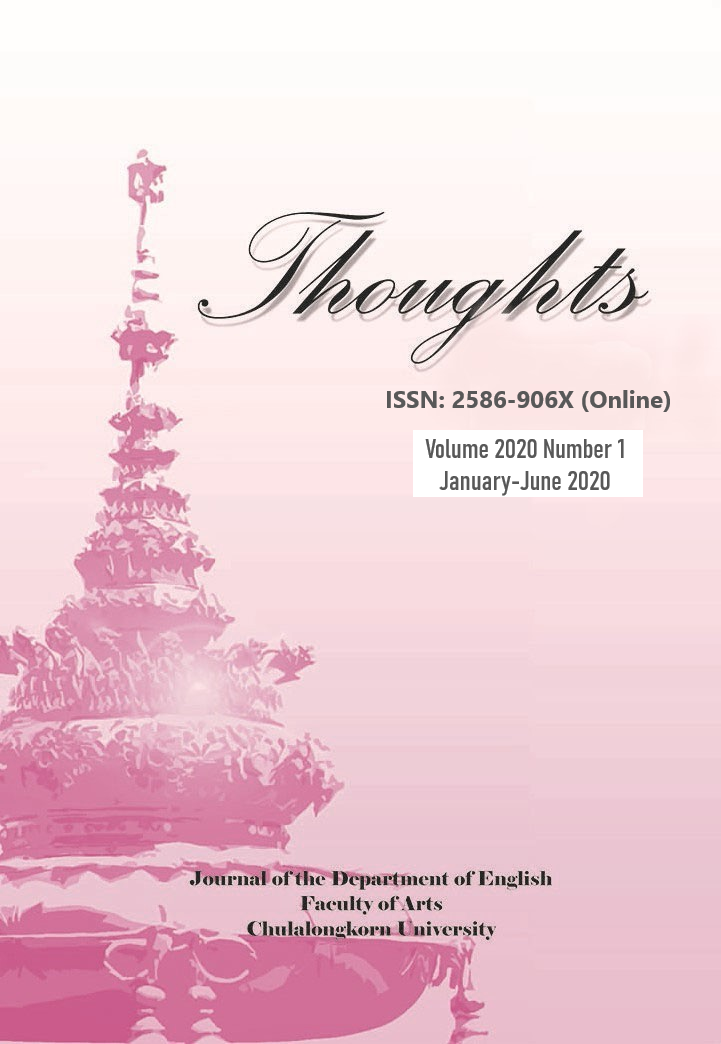Time, Narrative Trickery and Truth in the Early Fiction of Muriel Spark
DOI:
https://doi.org/10.58837/CHULA.THTS.2020.1.1Keywords:
Narrative, time, point- of-view, unreliable narrator, truthAbstract
Using Wayne C. Booth’s observations on modern narrative technique and, specifically, the notion of the unreliable narrator, this paper explores the strategies employed by Muriel Spark in three of her early novels, The Comforters (1957), The Prime of Miss Jean Brodie (1961) and The Abbess of Crewe (1974). The use of omniscience and the controlling aspects of time and perspective, employed in different ways, are seen as essential tools in Spark’s mission to reveal moral truth through the medium of fiction and to illustrate her specifically Catholic view of our fallen world. The paper concludes with the suggestion that, in the 21st century, a satirical vision such as Muriel Spark’s might be frustrated and cease to be effective because of the dominance of ‘fake news’, ‘alternative truth’ and downright lies.
References
Booth, W. C. (1961). The Rhetoric of Fiction. University of Chicago Press.
Kermode, F. (1963). The House of Fiction. Partisan Review, 30(1), p. 180.
Lodge, D. (1966). The Rhetoric of Wayne Booth. Critical Survey, 3(1), 4-6. www.jstor.org/stable/41553713.
_____. (1971). The Novelist at the crossroads. Routledge and Kegan Paul.
Sage, L. (1974). Bugging the Nunnery [Review of the book The abbess of Crewe, by M. Spark]. The Observer, 10th November, p. 33.
Spark, M. (1961a). My conversion. The Twentieth Century, Autumn, p. 63.
_____. (1961b). The comforters. Macmillan.
_____. (1961c). The prime of miss Jean Brodie. Macmillan.
_____. (1974) The abbess of Crewe. Macmillan.
Toynbee, Philip. (1971). [Interview with Muriel Spark]. Observer. Colour Magazine, 7th November, p. 74.
Downloads
Published
Issue
Section
License
Copyright (c) 2020 Thoughts

This work is licensed under a Creative Commons Attribution-NonCommercial-NoDerivatives 4.0 International License.
Copyright by the Faculty of Arts, Chulalongkorn University.
Photocopying is allowed for internal, non-commercial use only. Photocopying for other uses or for purposes other than indicated must be permitted in writing from the Faculty of Arts, Chulalongkorn University.
All views or conclusion are those of the authors of the articles and not necessarily those of the publisher or the editorial staff.


